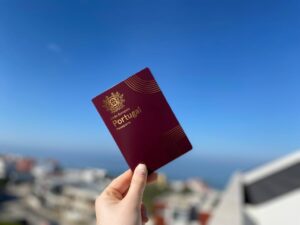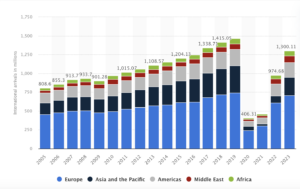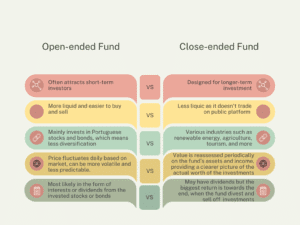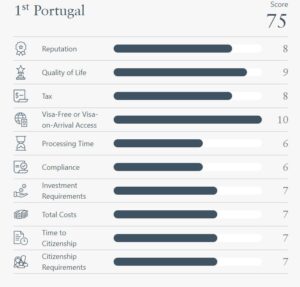
Portugal has become a popular destination for Americans seeking a more affordable lifestyle. With its mild Mediterranean climate, welcoming culture, and significantly lower cost of living, it offers a more relaxed pace and high quality of life. Compared to the USA, Portugal provides lower housing, healthcare, and everyday expenses, making it an attractive choice for expatriates.
Brief Overview of Key Differences
When comparing Portugal and the US in terms of cost of living, the contrasts are striking. On average, living in Portugal is about 45% cheaper than in the United States. Housing costs are a major differentiator—rent in Lisbon is typically 50-60% lower than in cities like New York or San Francisco. Eating out and groceries are also notably less expensive: a mid-range meal for two in Portugal costs around €40, while the same in the US often exceeds $70. Public transportation is more affordable and widely used, with monthly passes in Lisbon starting from €40, versus over $120 in many US cities.
Quality of Life Comparison
Portugal consistently ranks high for quality of life. It offers universal healthcare, low crime rates, affordable education, and a laid-back lifestyle. Americans relocating often cite less financial pressure, better work-life balance, and a strong sense of community as reasons for their move. Meanwhile, the US—despite its high income potential—struggles with high medical costs, urban safety concerns, and longer working hours.
Exchange Rate Benefits (USD to EUR)
The USD to EUR exchange rate has remained favorable for Americans in recent years. As of early 2025, $1 USD buys approximately €0.93–€0.95, which means American buyers and retirees get more value when spending or investing in Portugal. This advantage is particularly relevant when buying property, paying rent, or covering daily expenses, allowing Americans to stretch their budgets significantly further than back home.

Cost of Living in Portugal vs USA
Living in Portugal costs significantly less than in the United States, with most major expense categories averaging 30–50% cheaper. This affordability—combined with high standards in healthcare, safety, and lifestyle—is a key reason why Americans are increasingly relocating to Portugal.
For instance:
- A one-bedroom apartment in Lisbon’s city center rents for about €850–€1,100 ($920–$1,200), while the same in a city like San Francisco or New York would cost over $3,000/month.
- Groceries and dining out are roughly 30–40% cheaper in Portugal.
- Public transportation is widely used and far more affordable: €40/month versus $75–$130/month in the U.S.
- Even private healthcare costs are about 50–70% lower in Portugal.
Education in Portugal
Portugal: Public education is free and well-rated. International/private schools cost around €7,000–€15,000/year.
USA: Private schooling averages $15,000–$25,000/year, with top-tier schools going much higher. University tuition is significantly higher in the US compared to EU-based or Portuguese universities.
Groceries & Dining Out
Portugal
- Basic grocery basket (bread, milk, eggs, fruit, meat) = €200–€300/month.
- A 3-course meal for two at a mid-range restaurant = €35–€45.
USA
- Grocery costs are about 40–60% higher. Same basket = $400–$500/month.
- Equivalent dinner = $70–$90.
Costs on Transportation
Portugal
- Public transport monthly pass: €40–€50.
- Gasoline: ~€1.75/liter.
USA
- Monthly transit passes range from $75 to $130 depending on the city.
- Gasoline is cheaper per liter but car insurance and maintenance are generally more expensive.
Healthcare
Portugal
- Public healthcare is universal and nearly free for residents.
- Private consultation: ~€50–€80.
- Health insurance: €50–€100/month.
USA
- Average doctor visit: $100–$200.
- Health insurance premiums: $400–$800/month (and often more with deductibles).
Housing Prices
Portugal
- Rent (Lisbon): €850–€1,100 for 1-bedroom in city center.
- Purchase price: €4,000–€6,000/m² in prime areas.
USA
- Rent (NYC/SF): $2,800–$3,500+ for similar apartments.
- Purchase price: $10,000–$14,000/m² in city centers.
Utilities
Portugal
- Monthly for electricity, heating, cooling, water, and garbage: €100–€130.
- Internet: €30–€40/month.
USA
- Utilities: $150–$200/month.
- Internet: $60–$80/month.

Estimated Monthly Costs Living in Lisbon (2025)
- Rent (1-bed apartment, city center): €950
- Utilities & Internet: €130
- Groceries & Household Supplies: €250
- Transportation (public): €45
- Dining Out & Entertainment: €150
- Health Insurance (private): €60
- Mobile Plan & Miscellaneous: €50
- Total: ~€1,600/month
Couple with One Child (Middle-Class Lifestyle)
- Rent (2–3 bedroom apartment): €1,500
- Utilities & Internet: €180
- Groceries & Household Supplies: €500
- Transportation (2 public passes + occasional Uber): €100
- Dining Out & Entertainment: €250
- Health Insurance (family private plan): €150
- Childcare/School Fees (private preschool or international school): €400–€1,000 (varies)
- Miscellaneous & Clothing: €150
- Total: ~€3,200–€3,700/month
Family of Four (Parents + 2 Kids)
- Rent (3-bed apartment in city center): €1,800
- Utilities & Internet: €200
- Groceries & Household Supplies: €600
- Transportation (family pass or car costs): €150
- Dining Out & Entertainment: €300
- Health Insurance (family plan): €180
- School Fees (2 international school tuitions): €1,500–€2,000
- Miscellaneous & Clothing: €200
- Total: ~€4,900–€5,400/month
Why Choose Portugal?
Portugal continues to shine as one of the most attractive destinations for Americans seeking a better balance between quality of life and affordability. Here’s why so many expats fall in love with this Iberian gem:
Healthcare Quality and Accessibility
Portugal offers a universal public healthcare system (SNS) that is both accessible and affordable for residents. The country also has a robust private healthcare sector, with modern clinics, short wait times, and international-standard services—all at a fraction of U.S. prices. Expatriates with residency can access the public system, while private health insurance often costs less than €100/month.
Safety and Low Crime Rates
Portugal is consistently ranked among the safest countries in the world. According to the Global Peace Index, it ranks in the top 10 globally, far ahead of the U.S. Violent crime is extremely rare, and most cities and towns are walkable and family-friendly.
Rich Culture and History
With more than 800 years of history, Portugal is a treasure trove of architecture, traditions, castles, and festivals. From the cobbled streets of Lisbon to ancient Roman ruins and UNESCO heritage sites, the cultural experiences are endless—and always close by.
Mediterranean Climate
Portugal enjoys over 300 days of sunshine a year, with mild winters and long, warm summers. The Algarve in the south is especially known for its year-round pleasant weather, making it a favorite among retirees and digital nomads alike.
Strategic Location in Europe
Portugal is perfectly positioned as a gateway to Europe, Africa, and the Americas. Lisbon and Porto have international airports with direct flights to the U.S., UK, and major European cities, making travel easy and affordable.
English Proficiency Level
Especially in urban areas, tourist zones, and among the younger population, English is widely spoken. Many locals are bilingual, and most public services, restaurants, and healthcare professionals can assist English-speaking foreigners with ease.
Tech Infrastructure
Portugal’s digital infrastructure is strong, with high-speed internet, co-working spaces, and government support for startups. Lisbon is considered one of Europe’s rising tech hubs, hosting major events like Web Summit and attracting global talent.
Food and Wine Culture
Portuguese cuisine is known for its fresh seafood, regional specialties, and excellent affordable wines. From grilled sardines to pastel de nata and world-renowned Port wine, food lovers will find paradise here. Dining out is a cultural norm—and very budget-friendly.
Friendly Locals
Portuguese people are famously welcoming, warm, and helpful. Many expats highlight the kindness of neighbors and the strong sense of community they experience soon after arriving.
Where Do Most Americans Live in Portugal?
As the number of American expats in Portugal continues to grow, certain cities and regions have become established hubs for U.S. citizens seeking a new lifestyle. These areas combine affordability, accessibility, strong expat networks, and high quality of life.
Lisbon
The capital city is a top choice for Americans due to its international environment, vibrant culture, and growing tech scene. While it’s one of the more expensive areas in Portugal, it still offers a significantly lower cost of living compared to U.S. cities like New York or San Francisco. Lisbon has excellent infrastructure, English-speaking professionals, and a lively international community.
Cascais
Just 30 minutes from Lisbon, Cascais is a seaside town popular among affluent expats and families. Known for its beautiful coastline, safety, and excellent international schools, Cascais offers a more suburban, upscale lifestyle while still being close to the capital.
Porto
Portugal’s second-largest city has become increasingly popular for Americans. Porto offers a more affordable lifestyle than Lisbon, while still delivering on culture, history, and charm. It’s also home to excellent food, Port wine cellars, and a fast-growing expat population.
The Algarve
The southern coast of Portugal—known for its sunny weather, beaches, and golf resorts—is a favorite among retirees. Towns like Lagos, Faro, and Albufeira attract Americans who value tranquility, nature, and a lower cost of living. Many areas have well-established English-speaking communities.
Sintra
Nestled in the hills outside Lisbon, Sintra offers a fairy-tale setting of castles and forests. It’s ideal for families or remote workers looking for a peaceful lifestyle with proximity to the capital.
Coimbra
As a university city with a historic core and vibrant youth culture, Coimbra is attracting remote workers and families seeking lower housing costs and a more local feel. It’s well connected and known for its rich cultural life.

How to Plan Your Move to Portugal
Relocating to Portugal from the U.S. involves some planning, especially around legal residency, finances, and logistics. Here’s what you need to know:
1. Visa Options
D7 Visa – For Passive Income Holders and Retirees
Ideal for retirees or individuals with passive income (like rental income, dividends, investments, or pensions). Requires proof of consistent monthly income—€870 for an individual, or higher for couples/families.
Golden Visa – For Investors
A popular option for those looking to invest in Portugal via fund investment. It allows for a residency path with minimal physical stay requirements.
D8 Digital Nomad Visa – For Remote Workers
Tailored for remote workers earning foreign income. Applicants must show a monthly income of at least €3,480 (4x minimum wage) and a valid work contract or proof of freelance income.
2. Documentation Needed
- Valid passport
- Proof of income or employment
- Health insurance policy (with coverage in Portugal)
- NIF (Portuguese tax number)
- Criminal background check (FBI clearance for U.S. citizens)
- Accommodation proof (rental or property deed)
- Completed visa application form
3. Financial Requirements
In addition to minimum income thresholds, consider the following initial costs:
- Flight tickets to Portugal: $400–$800 (one-way)
- Initial rent/security deposit: Often 2–3 months’ rent upfront
- Visa application & SEF fees: ~€90–€170 depending on visa
- Moving/shipping costs: $2,000–$5,000 for an international move, depending on volume and distance
- Private health insurance (first year): ~€500–€1,200 per person
Planning ahead—especially regarding documentation, finances, and visa choice—can make your transition to Portugal much smoother.
Wondering which visa you should opt for? Take our Quiz and learn more about your eligibility!


























